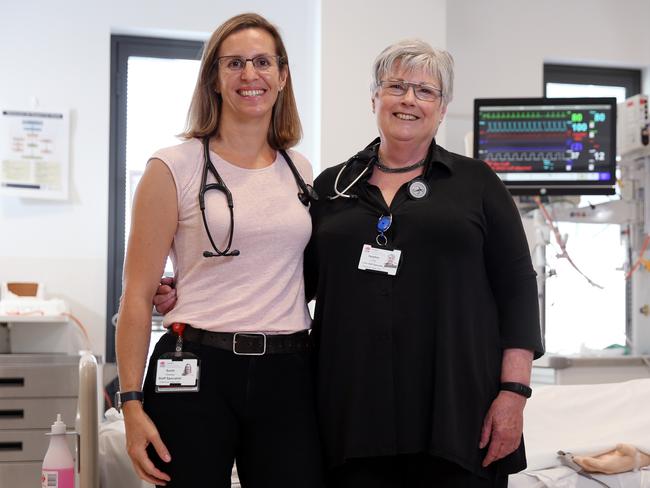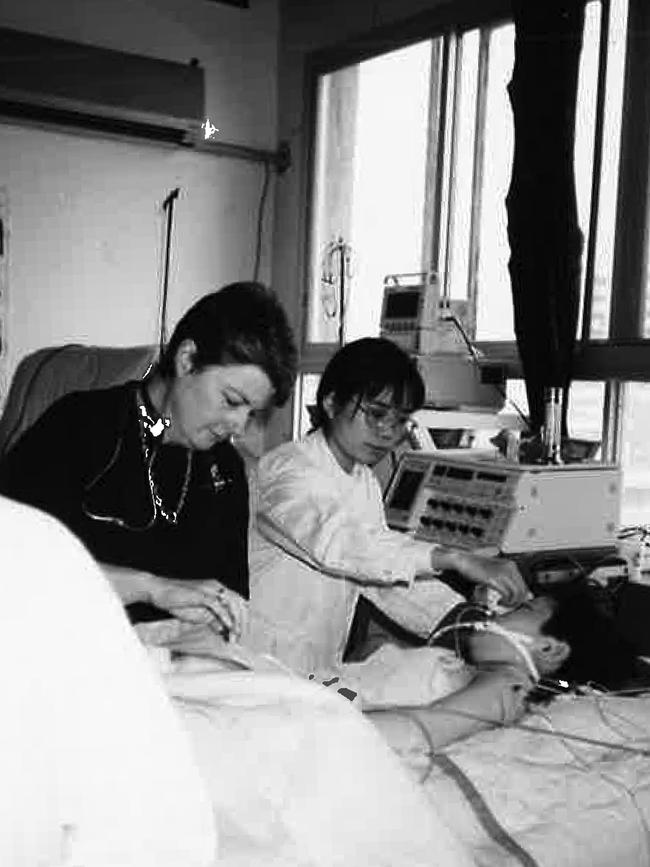More female doctors needed in intensive care units around NSW
Dr Heather Low was one of only two women working as an intensive care specialist in the mid-1980s and made the decision early in her career not to have children. Now 35 years later, women in that field have maternity leave, childcare and greater flexibility — but it still remains male-dominated.
As one of only two women working as an intensive care specialist in the mid-1980s, Dr Heather Low made the decision early in her career not to have children.
“If you think you’re going to have everything, you are always going to be unhappy,” the 65-year-old, who works at Sydney’s Royal North Shore Hospital, said.
“Some people are lucky enough to make more choices than others and I made choices along the way but I don’t regret anything I did in my career.”

With retirement on the horizon, Dr Low said changes for women in the four decades since she graduated from medical school meant they didn’t have to make compromises.
“I think it is lovely that they do have that choice,” she said ahead of International Women’s Day on March 8.
MORE FROM MIRANDA WOOD:
TRIAL TO HELP NEW DADS WHO FEEL DEPRESSED
HOW A NEW LUNG CANCER TEST CAN SAVE YOUR LIFE
Since she blazed the trail nearly 35 years ago, women in the demanding world of intensive care have maternity leave, childcare and greater flexibility but it remains male-dominated.
More female trainee doctors are coming through the ranks but the gender imbalance still exists with 200 men working as specialists in NSW compared with 63 women.

Nationwide, women represent about 22 per cent of the senior doctors in intensive care units.
Dr Low, a role model to a generation of junior female doctors, said during her early years “you had to kind of be a bloke” to fit in.
“To me it wasn’t a big issue — I didn’t even notice I was the only woman in the unit,” she said.
“It was just kind of normal.”
Dr Low now has six female colleagues at Royal North Shore’s ICU — one of the busiest in the state treating critically ill patients — including deputy director Dr Sarah Welsey.
Despite their different paths to the top and 20-year age gap, Dr Welsey said she understood why Dr Low “didn’t have kids”.
The mother-of-two said she relied on a nanny to continue her career which was “much more acceptable now” by society’s standards.
Flexible working conditions were also having an impact.
“The way we work is evolving,” Dr Welsey said.
“Our male colleagues have young families who also want the same ability to pick up their kids.”


